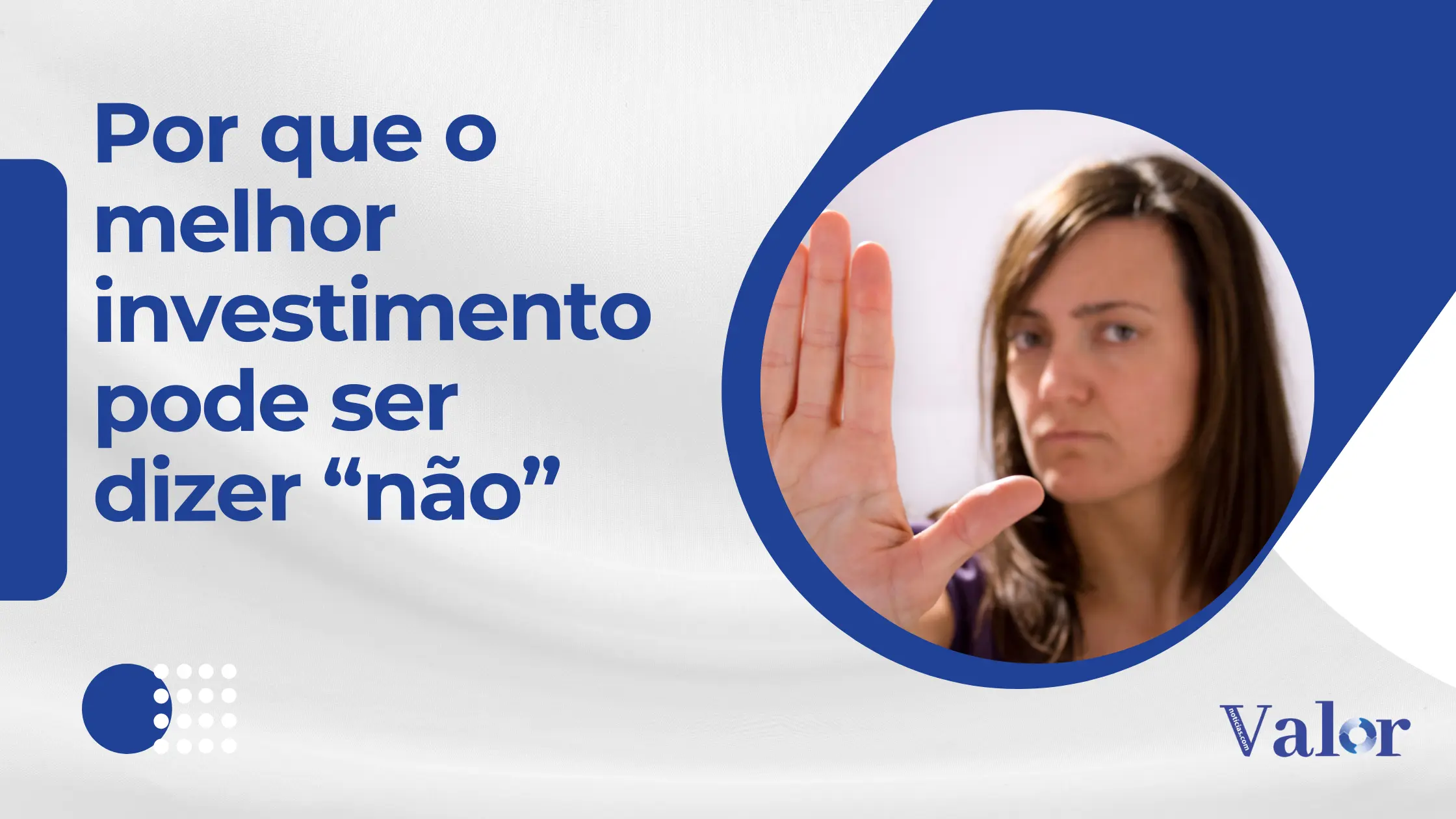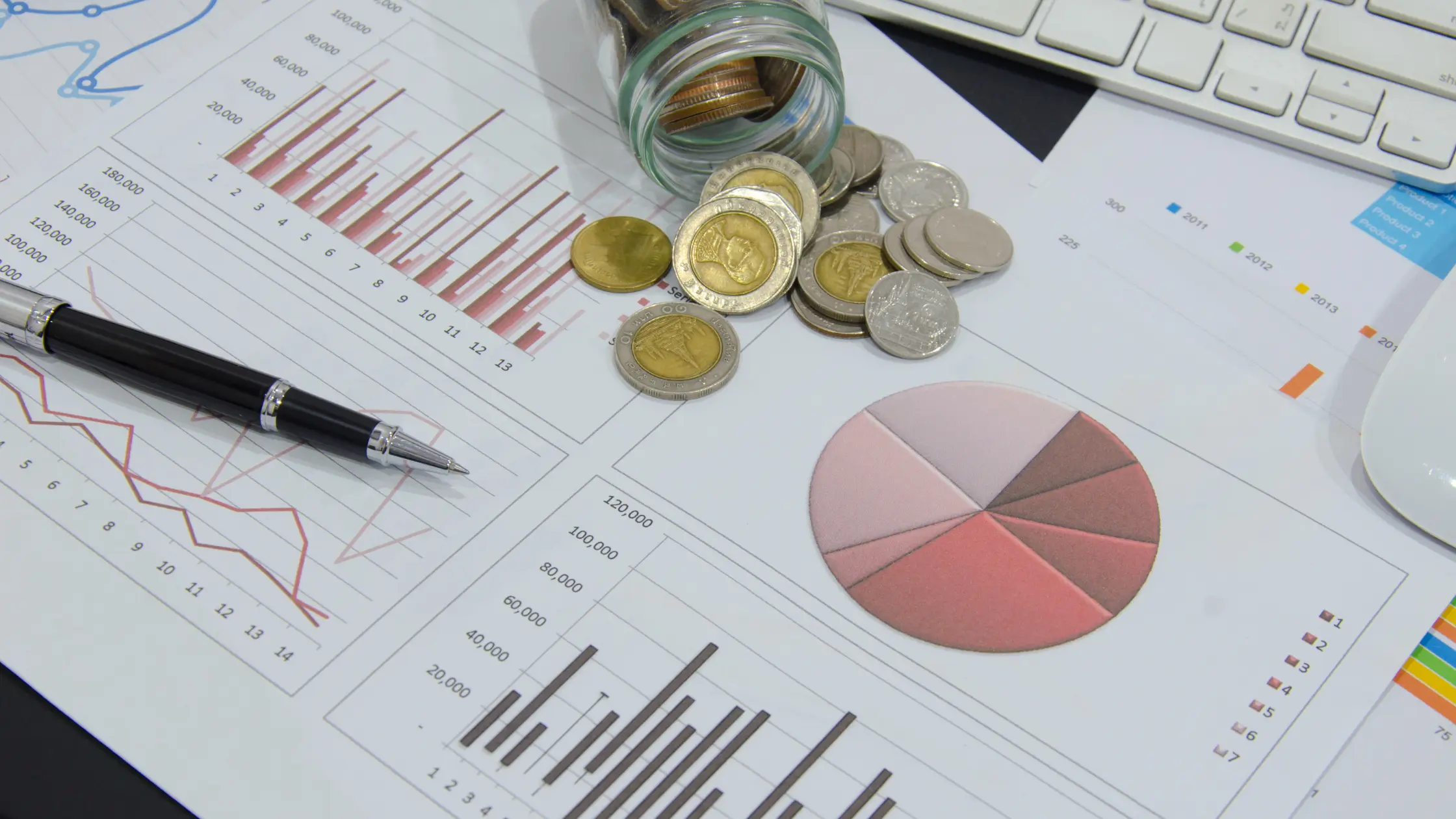Why the best investment may be saying “no”
The best investment may be saying “no”!
Advertisements

In a world where we are constantly bombarded with opportunities, invitations and demands, the ability to say “no” emerges as a strategic skill, often underestimated.
Saying “no” isn’t just a refusal; it’s a deliberate choice that protects our time, energy, and resources for what really matters.
In this article, we’ll explore why saying “no” may be the best investment.
Thus, addressing how this practice can transform personal, professional, and financial decisions, with solid arguments, practical examples, an enlightening analogy, and a striking statistic.
Let's dive into how this simple word can be the key to a more focused, productive, and goal-aligned life.
The “No” Economy: Protecting Your Most Valuable Resource

Time is the scarcest asset we have, and yet we often waste it on commitments that don't add value.
See also: Real Tips for Controlling Expenses in Times of Crisis
Saying “no” is, therefore, a way of investing in what really drives your goals.
Imagine an entrepreneur who accepts every project that comes his way: he may find himself overwhelmed, with tight deadlines and mediocre results.
By rejecting opportunities that aren't aligned with his vision, he preserves energy to focus on initiatives that generate real impact.
Thus, “no” becomes a prioritization tool, allowing you to allocate resources where they are most effective.
Furthermore, saying “no” prevents mental and physical exhaustion.
Studies show that task overload reduces productivity by up to 20%, according to a 2023 Harvard Business Review report.
So when we accept everything, we dilute our ability to deliver excellence.
Think of a graphic designer who accepts a low-paying project just to “keep the client.”
By saying “no” to this type of commitment, he makes room for more profitable projects aligned with his expertise, maximizing his return on the investment of time and talent.
Finally, the practice of saying “no” strengthens self-confidence.
Each conscious refusal reinforces clarity about your values and priorities.
For example, consider Ana, a marketing professional who was constantly being invited to give free speaking engagements.
++ The Truth About Living Above Your Earnings
By turning down events that didn't offer fair pay or strategic visibility, she not only increased her income but also gained respect in the market for valuing her work.
Thus, “no” becomes an investment in your personal brand, signaling to the world that your time is valuable.
The art of saying “no” without burning bridges

While saying “no” is powerful, how you say it is equally important.
A poorly articulated refusal can lead to misunderstandings or tensions.
Therefore, it is essential to master the art of refusing diplomatically.
In other words, an effective approach is to express gratitude, briefly explain your decision, and, if possible, offer an alternative.
For example: “I really appreciate the invitation, but I’m currently focused on other projects.
I can recommend a colleague who would be perfect for this opportunity.”
This strategy keeps relationships intact while protecting your priorities.
Furthermore, the “no” could be a trading opportunity.
In this sense, imagine a freelancer who receives a proposal with a tight deadline and limited budget.
Instead of directly accepting or rejecting, he can say, “I can’t deliver in that timeframe, but if we adjust the schedule, I can guarantee an exceptional result.”
This approach turns refusal into a chance to align expectations, benefiting both parties.
Thus, “no” ceases to be an end and becomes a means to build more aligned partnerships.
On the other hand, social pressure often makes us hesitate to say “no.”
The “people-pleasing” syndrome can lead to unwanted commitments, draining energy and resources.
Ask yourself: Why do we feel guilty about prioritizing our own goals?
The answer lies in the mistaken belief that saying “no” is selfish.
In fact, it is an act of responsibility to yourself and others, as it ensures that you deliver your best only where you can truly make a difference.
The best investment may be saying “no”: “No” as a financial strategy

In the world of financial investments, saying “no” is as crucial as choosing where to invest.
The temptation to follow trends or invest in “unmissable” opportunities can lead to hasty decisions.
For example, during the cryptocurrency boom in 2021, many investors jumped into projects without solid fundamentals, driven by fear of being left behind.
Those who said “no” to these fads, opting for more stable assets, often protected their capital from significant losses.
Additionally, saying “no” to impulsive spending is a way to invest in your financial health.
Consider the case of John, who resisted pressure from friends to buy a new car that exceeded his budget.
Instead, he invested the difference in a diversified equity fund, which, over five years, generated a return of 12% per year.
This “no” not only avoided debt, but also built long-term wealth.
Therefore, refusing unnecessary expenses is a direct investment in your financial freedom.
Finally, the financial “no” also applies to partnerships or risky businesses.
Before closing a deal, consider whether it aligns with your long-term goals.
An entrepreneur who rejects an investor with misaligned values protects his company from future conflicts.
Like a tree that prunes weak branches to grow stronger, saying “no” eliminates distractions and strengthens your financial foundation.
Analogy: “no” as a water filter
Think of “no” as a water filter in a polluted river.
Just as a filter removes impurities to deliver clean water, saying “no” eliminates distractions.
As well as unnecessary commitments and disproportionate risks, leaving only what is essential for your life.
Without this filter, you drink a mixture of valuable and toxic opportunities, compromising your personal and professional health.
“No” purifies your choices, ensuring that only the best opportunities come to you.
This analogy also highlights the importance of maintenance.
A clogged filter loses effectiveness, just as a poorly calibrated “no” can block valuable opportunities.
Therefore, it is crucial to refine your ability to discern when to say “no” and when to open doors.
Consistent practice makes this filter more efficient, allowing you to live with more clarity and purpose.
Finally, the “no” filter is not static.
It evolves with your priorities and context.
A student might say “no” to a low-paying internship to focus on their studies, while an experienced professional might turn down a project that won’t advance their career.
In both cases, the “no” is what ensures that the flow of your decisions remains clean and focused.
Table: Benefits of saying “no” in different areas
| Area | Benefit of “no” | Practical example |
|---|---|---|
| Productivity | Increases focus on priority tasks, reducing distractions. | Refuse unnecessary meetings to focus on a strategic project. |
| Mental health | Reduces stress and prevents burnout from overcommitment. | Say “no” to social events to make time for rest. |
| Finances | Protect your budget by avoiding impulsive spending or risky investments. | Refuse to buy a superfluous item and invest the money in an emergency fund. |
| Career | Allows you to focus on opportunities aligned with long-term goals. | Turn down a low-visibility project to invest in a training course. |
The best investment may be saying “no”: Frequently Asked Questions
| Question | Response |
|---|---|
| How do you say “no” without sounding rude? | Use a respectful tone, thank them for the opportunity, and if possible, suggest an alternative or briefly explain your decision. |
| Can saying “no” harm relationships? | If done diplomatically, no. A clear refusal can even strengthen mutual trust. |
| How do you know when to say “no”? | Assess whether the opportunity aligns with your goals, values, and available resources. |
| What if I regret saying “no”? | Reflect on the reason for the refusal. If it was a decision aligned with your priorities, you're unlikely to regret it. |
| Is saying “no” always the best choice? | No. "No" is valuable when it protects your resources, but flexibility is essential for strategic opportunities. |
The best investment may be saying “no”: The transformative impact of “no”
Saying “no” is more than a refusal; it’s an act of courage that redefines your priorities and shapes your future.
So by protecting your time, energy, and resources, you invest in yourself, your mental health, and your long-term goals.
Harvard Business Review statistics reinforce that overload reduces productivity, but the opposite is also true: by eliminating excess, you increase your efficiency.
Furthermore, the examples of Ana and João illustrate how saying “no” can be a catalyst for personal and financial success.
Whether it's turning down a misaligned project or an impulsive expense, every "no" is a step toward a more intentional life.
The water filter analogy reminds us that without this mechanism, we drown in a sea of distractions.
So why not start saying “no” today?
Every conscious refusal is an investment in your future, a brick in the construction of a more aligned and meaningful life.
By mastering this practice, you not only protect your resources, but also make room for the opportunities that are truly worthwhile.
